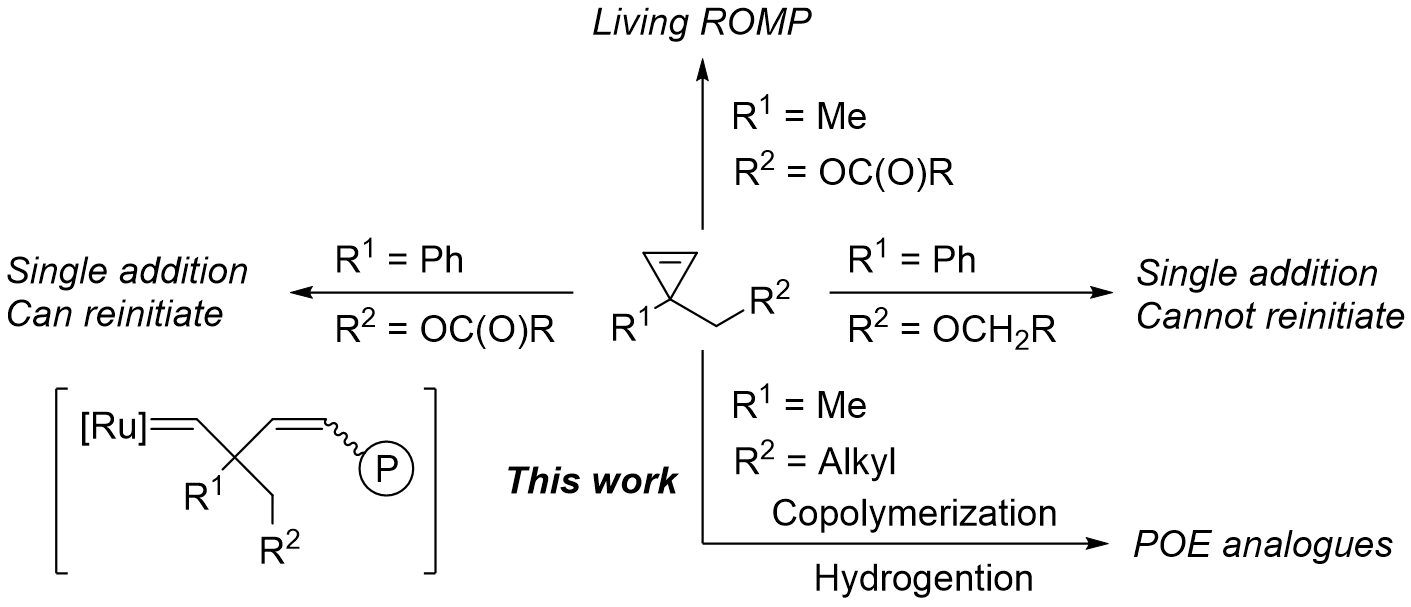Polyolefin elastomers (POEs) are important reprocessable industrial materials with high strain-recovery performance. Traditional POEs are prepared from transition-metal-catalyzed polymerization of ethylene and α-olefins, while because of the complicated coordination polymerization mechanism, defining the actual distribution and length of alkyl branches in POEs is extremely challenging. We herein propose an alternative approach of synthesizing POE analogues from ring-opening metathesis polymerization (ROMP) of highly strained 3,3-alkyl-substituted cyclopropenes (CPEs). The structures of monomers and the substituents of Ru-catalysts are investigated in detail to evaluate the homobenzyl-substituted CPE derivative as a new living ROMP monomer. After copolymerization with cyclooctene and backbone hydrogenation, POE analogues with well-defined alkyl branches are prepared. Since the ROMP reactions have little isomerization and can also give good control of molecular weight and copolymer composition, it is hypothesized that this synthetic approach provides a novel platform to assist understanding the influence of branches on the properties of POEs.
This research work entitled “Ring-opening metathesis polymerization of cyclopropene derivatives towards polyolefin elastomer analogues” has been published in Science China Chemistry
Link to the article: http://engine.scichina.com/doi/10.1007/s11426-022-1395-0
Co-corresponding authors: Assistant Professor Yu Wang (ywang507@iccas.ac.cn), and Professor Wei You (weiyou@iccas.ac.cn).



downloadFile